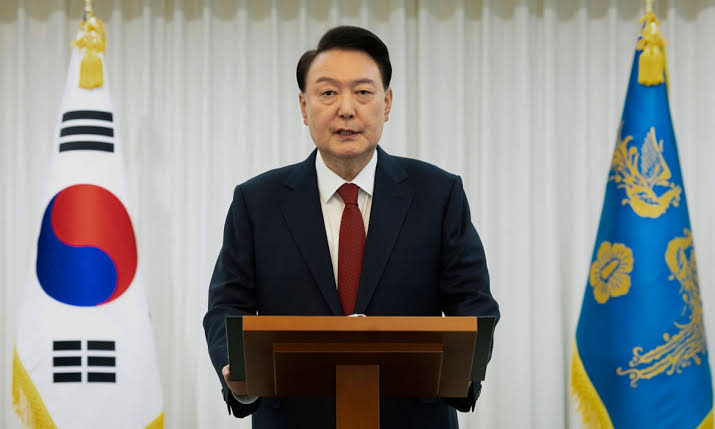South Korea Arrests Former President Yoon on New Charges of Abuse, Corruption
South Korea’s impeached former president, Yoon Suk Yeol, was arrested early Thursday after a court issued a new arrest warrant, reviving efforts by prosecutors to detain him over serious allegations, including corruption, abuse of power, and obstruction of official duties.
Yoon, 64, was taken into custody just hours after appearing in court on Wednesday for a hearing that lasted nearly seven hours. Despite rejecting all charges, he was later transferred to a detention center near Seoul, where he is now being held in solitary confinement and could remain for up to 20 days as prosecutors prepare formal indictments.
The Seoul Central District Court approved the warrant based on concerns that Yoon might destroy evidence. Judge Nam Se-jin, who authorized the arrest, supported the special counsel’s claims that detaining Yoon was necessary to preserve the integrity of the investigation.
Yoon is already on trial for insurrection tied to a failed martial law attempt, which involved deploying soldiers to parliament after losing the 2022 election. In April, South Korea’s Constitutional Court upheld his impeachment, officially removing him from office. His initial arrest in January was overturned in March, allowing him to remain free during the trial — until now.
Prosecutors say Yoon refused multiple summonses from a special counsel appointed by parliament, prompting a renewed push for his arrest. The new charges stem from his alleged resistance to a January arrest attempt, accusations of authorizing unauthorized drone flights to Pyongyang, falsifying official documents, and other offenses linked to the martial law bid.
During the hearing, Yoon’s legal team argued that the detention request was unnecessary, claiming that he no longer holds any power and poses no threat to the ongoing investigation.
Still, if prosecutors proceed with formal indictments, Yoon could be held for up to six months as his criminal trial unfolds.
President Lee Jae Myung, who won the June snap election following Yoon’s ouster, has since approved sweeping investigations into the former president’s conduct while in office. The probes also extend to his administration’s dealings and his wife.
The Constitutional Court, in its unanimous decision to remove Yoon on April 4, condemned his attempt to subvert democracy, calling it a “betrayal of the people’s trust” and “a denial of democratic principles.”
The political crisis sparked by Yoon’s actions has left South Korea deeply divided, with many citizens still reeling from the unprecedented events that shook the nation’s democratic institutions.



[…] Liberia-flagged Eternity C was struck Monday afternoon by sea drones and rocket-propelled grenades launched from Houthi speedboats, according to maritime security sources. The lifeboats […]